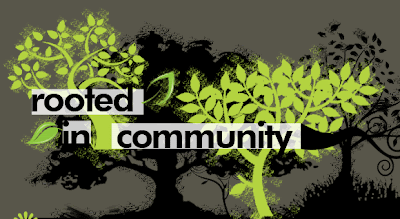As Dale and I walked into the Parent Lounge for the post-observation Student Panel meeting, I glanced over at the four District C students sitting at the large conference table in the center of the room. The student panel consisted of one Senior, one Junior, one Sophomore, and one Freshman. The Superintendent, Principal J, Kim, four Education Professors from RI College, myself and my seven SED 407 classmates, and two individuals that I did not recognize, possibly parents or school staff, sat in a semi-circle facing the District C student panel. Personally, I had just felt slightly uncomfortable and a bit uneasy when several of the people sitting in the cemi-circle had looked up when Dale and I walked into the meeting a few minutes late. Feeling this way made me wonder how the students in the panel were feeling. Yet these four students were sitting there looking around, smiling, and talking and joking with Principal J. Instantly, I admired their strength and resolution, as they each sat there unwaveringly in front of a panel of professional educators and collegiate students.
As the group discussion began, the Senior immediately boasted about the student pride at District C, not just in sports, but in extracurricular activities and academics as well.
"The teachers [at District C] challenge us academically,"
the Senior stated with conviction.
And with this, the caliber of the discussion was set. For the remainder of the meeting the four students on the panel were asked a number of questions regarding their educations. It was not at all surprising that the students' answers facilitated frank and open discussions about teachers, teaching methods, and learner differences and preferences.
When asked about "their ideal teacher," the students on the panel expressed teacher qualities that any administrator or human resource coordinator would be seeking when hiring a teacher to work for their institution. To sum them up: Understanding, Challenging, Knowledgable and Patient.
The maturity and level of self-awareness reflected in the complexity of their answers was inspiring. When asked, "What motivates you as a student?" the Freshman in the panel responded that he wanted to make his family proud by becoming the first to attend college. "I want to be what my parents couldn't be." He profoundly expressed his aspirations for the future as he said with determination,
"The only limits that exist are those you make for yourself."
The Senior responded next, communicating that his academic motivation stems from a need to help other District C students. His achievements have been fueled by his ambition to be a leader and role model in his community; to push other students to be successful and rise above the preconceived expectations that so many people have about District C and its student body:
"I want to get good grades to prove to others and the media
that [District C] is not as bad as everyone thinks it is."
As with the other students on the panel, the Sophomore exhibited an air of confidence in his voice as he conveyed to his audience that regardless of the bad press, controversy and scrutiny that has inundated his community, he "would never be ashamed to be from [District C]." My classmates and I are the "future of America," he exclaimed proudly.
"I know what I am capable of."
The panel of students were also asked about assignments, what they liked and what they disliked. Each of them had a variety of responses but what stood out most to me was the Junior's response. He responded that he liked group assignments because, as he put it, "by working with your classmates, you develop social skills that you can use in real life [and group work often allows] you to become the teacher." He also expressed that he liked "challenging work, AP classes and assignments where I get things wrong," explaining that, "practice makes perfect."
The final question posed to the student panel was in regards to District C's curriculum. They were asked, "what would you add to your school's curriculum?" Their responses were very similar in that they all wished to add courses to the curriculum that pertained to and helped develop and foster skills that could be used in the real world. Some of the classes mentioned were: Business, Finance, Science, and Technology. The students also expressed that they wanted teachers to:
- Recognize their talents
- Teach 21st Century skills
- Challenge their thinking
- Give them opportunities for critical thinking
And again I found myself swelling with pride as I thought to myself,
"I am so proud to be part of the community at District C."
American Psychological Association article:







